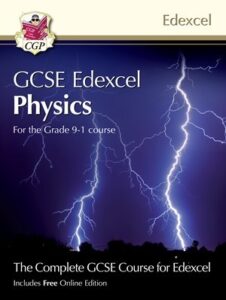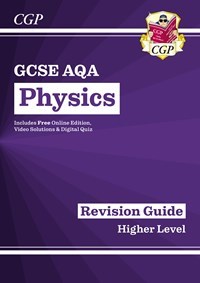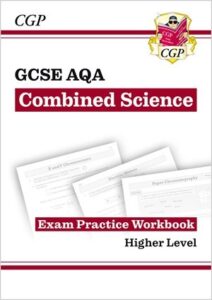School Success
Science GCSE key facts
There are 5 GCSE examination boards used in England, Wales and Northern Ireland — AQA, Edexcel, OCR, CCEA, and WJEC. AQA and Edexcel are the more popular in England. WJEC is the Welsh board and CCEA is Northern Ireland.
GCSEs are studied during Key Stage 4 of the National Curriculum and the exams are usually taken at the end of year 11.
You have a choice between taking individual sciences (Biology, Chemistry, Physics) which gives you three GCSE passes, or Combined Science, which give you two. Combined science basically covers two thirds of the topics studied in the separate sciences.
Exams consist of written papers only – no practical exams. Two papers for each science.
Resources for science GCSE
Your son or daughter may find science hard; there are loads of facts to learn, definitions to remember word-perfect, concepts to understand, diagrams to memorise, ideas to discuss, practical experiments to describe and problems to solve. It can seem daunting.
To help them, you’ll need to make sure they have effective learning resources. These must firstly explain the subject clearly, and secondly provide a large number and variety of questions with detailed answers.
Research into learning always comes back to the same conclusion – the key is to keep testing, answering a wide variety of questions. After all, this is how you’re assessed in the end.
Resources that I’ll talk about are:
~ Texbooks – your main learning aid
~ Revise guides – good for key facts and cramming
~ Revision websites – an alternative to your textbook
~ Videos – great to hear someone explaining stuff
~ Workbooks – for testing.
~ Exam papers
Here are some examples:
Textbooks

A good textbook written for the correct exam board is your main resource. I’m not talking about revise guides! Textbooks are comprehensive, explaining topics in detail along with information that provides context. Your school may use one, or recommend one. If not, the textbooks by cgpbooks.co.uk are a good choice. They cost around £19 for each of the three sciences, a little less for combined science. Essential!
Revise guides

Good for reviewing key facts and for cramming before exams. Cheap enough to have along with your main textbook.
Workbooks

These contain lots of graded questions with detailed answers for regular practice. The cgpbooks.co.uk workbooks are ideal – just check that they include answers with some you have to buy a separate answer booklet. There are workbooks aimed at the top levels, 8-9, which are really useful for testing problem-solving skills. Cheap and excellent value.
Websites and exam papers
There are lots of good websites, many of which offer revision notes, videos and exam papers all together
Like the textbooks, your school may use one or two for homework, such as Kerboodle, or recommend some for personal work. Ask your son or daughter what they use and whether they find them useful.
Here are some good ones:
Save my exams: Possible the best site for collections of worksheets, revision notes and exam papers for all exam boards and science GCSE courses.
Maths made easy: Ignore the name – they are good for Science as well. They have a list of past papers from different boards all in one place – saves you having to go to each exam board website.
Primrose Kitten: Some say that these are the best YouTube videos. She has lots of dedicated fans who like her style and the honest advice she gives. Definitely subscribe.
Free Science Lessons – Simple, short videos explaining exactly what you need to know and no more; no waffle.
PMT Education: Lots of good revision material for the three sciences as well as Maths. Also, very supportive of parents with up-to-date information about what’s happening in schools and how to help your child. Have a good look.
Seneca Learning: Database of interactive questions and answers. Great for testing your knowledge and popular with students
StudyMind: Loads of practice questions and answers
BBC Bitesize – comprehensive and reliable.
Malmsbury School Practicals: Great collection of videos demonstrating and explaining the required practicals.